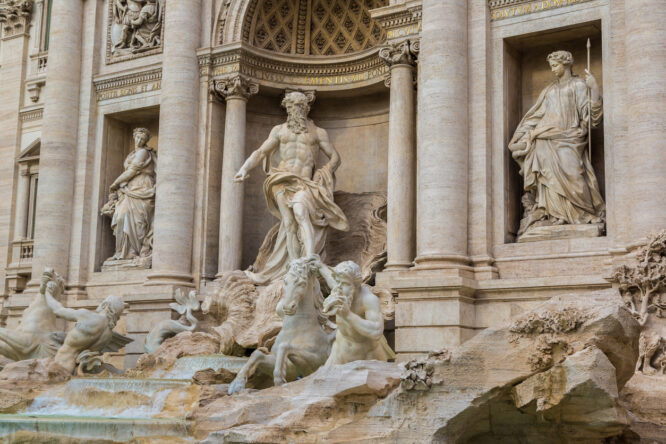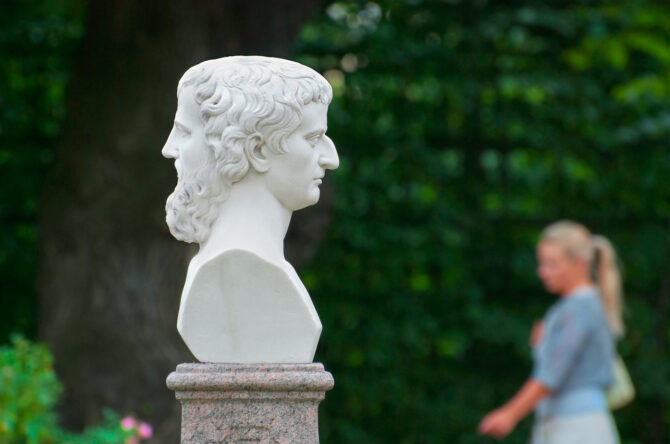
You might not be making sacrifices at a Roman temple or calling on Jupiter to fix your flat tyre, but the gods and goddesses of ancient Rome haven’t exactly vanished. They’re still hanging around, just in ways that are a bit more subtle. Whether it’s the names we use, the ideals we chase, or the myths we’ve reshaped, these figures are more stitched into modern culture than most people realise. Here’s how they’re still showing up today, sometimes in ways most of us aren’t even aware of.
Their names are literally everywhere.
We still name planets after Roman gods—Mars, Venus, Jupiter. That’s not just old-school tradition; it’s a sign of how much these figures shaped how we understand power, beauty, war, and love. Every time someone says, “I’m a Virgo,” they’re referencing Mercury’s realm without realising it. It’s not just astronomy, either. Think of companies like Nike (goddess of victory in Greek but still tied to Roman ideas), or the Roman calendar months named after gods. Their legacy didn’t die; it got branded.
We still obsess over the same themes.
The Romans had gods for pretty much everything—war, love, messaging, home life—and we’re still tangled up in those same themes today. We just don’t call on deities anymore; we call on therapy, social media, and group chats. However, the underlying stuff, like desire, power, revenge, and glory is still here. The gods represented human traits blown up to divine scale. And in a way, we’ve just replaced the altars with apps and hashtags.
Modern storytelling steals from them constantly.

Whether it’s films, fantasy books, or even Marvel characters, the fingerprints of Roman mythology are everywhere. Heroes with tragic flaws, gods battling over humanity, and forbidden love are all straight from their playbook. Even if you’re watching something that feels modern, like a dystopian thriller or a teen drama, the themes and archetypes often echo Roman myths. We’re still reworking those same dynamics, just in new clothes.
We still value what they symbolised.
The gods weren’t just characters—they stood for ideas. Venus for beauty and love, Mars for war and masculinity, Mercury for speed and communication, and if you look around, those ideas are still treated like currency today. Influencer culture alone is dripping with Venus energy. Competitive hustle culture? Pure Mars. Our world hasn’t outgrown these ideals; we’ve just digitised them.
Politics still plays out like mythology.
The Romans loved a bit of drama in their power struggles: think alliances, betrayals, public spectacle. Sound familiar? Today’s political theatre often mirrors the same kind of mythic chaos, just with microphones instead of swords. Charismatic leaders, downfall arcs, loyalty, and revenge—it’s all very Jupiter versus Saturn. The stage is different, but the roles feel ancient.
We still look for meaning in chaos.
Back then, gods explained why bad things happened. Why crops failed. Why love hurt. Why war broke out. Today, we’re not praying to Minerva, but we’re still desperate to find meaning in mess, just through psychology, horoscopes, and algorithms instead. The need to make sense of what feels out of our control hasn’t changed. We’ve just swapped statues for screen time.
They show up in language more than you realise.

Words like “mercurial,” “jovial,” “venereal,” and “martial” all trace straight back to Roman gods. We use them without thinking, but they’re part of the way we describe people’s moods, behaviours, or qualities. Even the word “lunatic” comes from Luna, the moon goddess. The influence is baked right into how we talk about emotion, power, and even chaos.
Astrology keeps them alive.
Modern astrology is a weird blend of science, mythology, and vibes, and a lot of the symbolism still ties back to Roman and Greek gods. Mars rules passion and aggression. Venus rules love and beauty. It’s ancient belief systems in a new wrapper. You don’t have to believe in astrology to notice how it’s shaped culture. People build whole identities around their Mars placement, and that’s Roman myth sneaking in through the back door.
We still crave something bigger than ourselves.
Whether it’s gods, the universe, or some kind of higher purpose, humans seem wired to look upward. The Roman gods gave people a way to understand the world, and even though we’ve moved on from temples, that craving hasn’t gone away. Today it might show up as spirituality, fate, or personal growth journeys. However, the hunger for meaning, guidance, and wonder is definitely still alive and well.
We reframe them to suit modern values.
Now and then, you’ll see old myths get retold with a new lens: Venus as empowered, not vain. Mars as someone with complex trauma, not just aggression. We give these gods emotional depth because that’s what we’re hungry for now. The stories evolve with us, which is why they’ve lasted. They weren’t perfect to begin with; they were just reflections, and they still are.
They remind us of our contradictions.

The gods weren’t pure or wise. They were messy, jealous, chaotic, and powerful. Kind of like us. That’s part of why they stick. They hold up a mirror to the way people can be both loving and selfish, brave and insecure, wise and impulsive. We don’t really outgrow that complexity. If anything, we’re still trying to make peace with it, and the gods show us we’re not the first to try.
They’ll always be part of the cultural fabric.
You don’t have to believe in Roman gods to feel their impact. They shaped art, law, architecture, stories, and philosophy. They helped build the blueprint of the Western world, for better or worse. So yes, they’re still relevant—maybe not as divine figures, but as symbols, references, and reminders that human nature hasn’t changed as much as we like to think.




